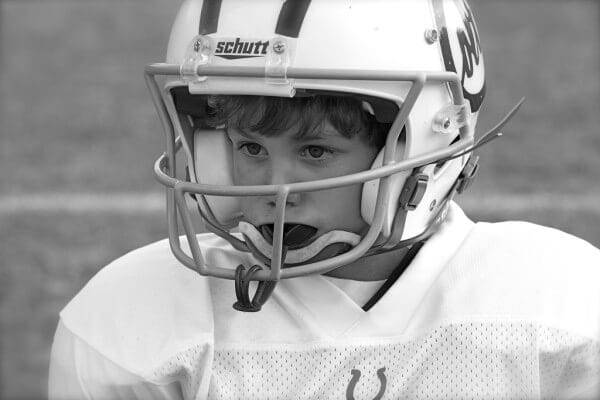Sweating and dehydration are a huge concern among sporting teams, coaches, and trainers! Although dehydration is more prominent in summer sports, it is equally important to consider in the upcoming fall sports and activities.
The average person has 2.6 million sweat glands spread across their body. Sweating is used as a cooling process when we are exerting ourselves. When we sweat we are losing water, salt, and other key minerals to our health. Note: We lose around 1500mg of sodium per 1 liter each time we sweat. So what happens if we lose too much water? The cells in our body start exchanging fluids trying to keep balance in our systems and can lead to a ton of negative health issues. (*This effects everyone, not just athletes.)
What happens when I am dehydrated? Side effects of dehydration include:
- 1% dehydrated: Reduced lung capacity and signs of thirst present
- 2% dehydrated: symptoms of thirst continue accompanied by loss of endurance and appetite.
- 3% dehydrated: Oxygen usage compromised by five percent and an increased risk of heat stroke or heat cramps.
How much water do I need to prevent dehydration?

- 7–10oz every 10–20 minutes during exercise.
- 20–30 ounces 2–3 hours prior to event
- 1 liter of water post-event: including a recovery drink with carbohydrates and protein to repair muscle damage and replenish energy. The healthiest and cheapest way to do this would be to blend up some fruit, milk and ice at home before the game if possible. If not, a piece of fruit and tablespoon of peanut or almond butter will give the needed protein and are easy to transport. Just be sure to get enough water.
These numbers are estimates provided for athletes or individuals that experience a moderate amount of running or cardiovascular exertion during an event. A moderate amount would be 30–60 minutes of cardiovascular exercise within the time frame of 1 game or match. You don’t have to be running constantly in order to become dehydrated, cardiovascular exertion is accumulative.
How long before a game should I drink water?
Pre-exercise hydration is just as important as drinking water during an actual event. Drinking around 20–30 ounces of water 2–3 hours prior to an event means an athlete will have to hydrate less during the game and ensures the urine output starts returning to normal before starting the event.
I drink water all the time when exercising, but I still feel sick. Why?
It is possible to drink too much water or drink the wrong thing when exercising. Over hydration can lead to hyponatremia, a fancy word that means abnormally low blood sodium levels. Drinking too much water will dilute the electrolytes in your blood and is most common in endurance athletes e.x. soccer players, marathoners, and triathletes. Symptoms of over hydration include:

- Fatigue
- Confusion
- Nausea
- Headache
- Weakness
- Spasms
- Seizures
Watch out for dairy, sweetened or sugary drinks. Glycerol or other hypertonic drinks (sports drinks) have binding agents in them which attach to the water molecules. This can lead to hyperhydration, (over-hydration) causing similar effects as actual dehydration can. It will increase sweating and seriously damage performance.
This is generally difficult to do. In most cases, athletes are in a dehydrated state and are not at risk for this to be an issue.
Dehydration Can Seriously Effect Performance
Don’t like water? Properly hydrating your body can improve your athletic performance. Example: A research study measuring endurance monitored a 7.5 mile (12km) race with 2 groups of runners. One group was completely hydrated while the other group was measured to be 2% dehydrated by body mass. By the end of the race the 2 groups finished at 2% and 4% dehydrated respectively. Performance was documented to be 5% slower when completing with 4% dehydration. Those runners also reported a significantly greater perception of effort, thirst tension, anxiety and fatigue. So would you rather perform a race or competition at 100% of your best or 95%?
Drinking water and maintaining proper hydration is equally as important as training, practice, wearing the proper equipment ect. It allows your body to function at its best. Learn more tips for athletes here or contact us today to answer an additional health questions you may have.

